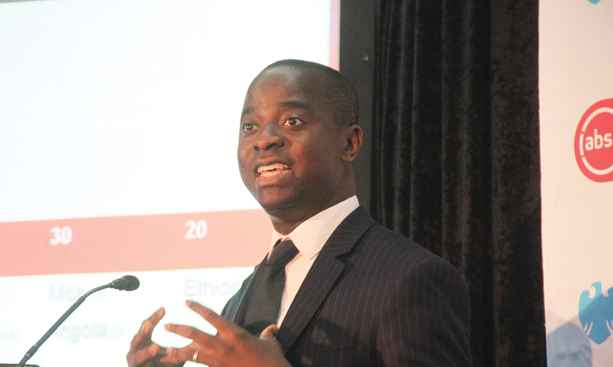The Absa Africa Financial Markets 2020 Index Report shows that Botswana’s capital markets and economy have remained stable amid Covid-19 pandemic which crippled other African capital markets.
The 4th index of the report launched on Wednesday depicts that Botswana has made significant improvements boasting of a positive macro-economic environment to attract investors too.
Under Pillar 5 of ranking the countries being macro-economic opportunity, the index ranked Botswana as the country that has the lowest external debt amongst all 23 surveyed countries.
“There were decrease in external debt in Seychelles, Botswana, Ivory coast and Namibia raising their scores in this indicator. Three countries had their external debt above 50% of GDP in 2019. South Africa regained the lead in pillar 5 despite poor economic performance,’’ the report states.
Countries made strides in growing their markets, boosting international activity and linking exchanges but some initiatives were put on hold due to the pandemic prevention measures.
In terms of market depth pillar, there has been stunted growth for most financial markets. Botswana scored 250 out of maximum 500 points assessed on its size and liquidity of the local financial markets as well as the diversity of products available with decline linked to Covid-19.
“Market capitilisation decreased across most markets. Botswana is doubling its T-Bills auctions to eight per year from quarterly to assist market price discovery. In combination, it will issue standardised three and six months T-Bills,” Absa index weighed on Botswana growth chances.
The Bank of Botswana (BoB), according to Absa Africa Financial Markets index report, has extended collateral for its lending facilities of corporate bonds listed on Botswana Stock Exchange (BSE).
Briefing local journalists on Thursday, Head of Global markets at Absa Group George Asante said as countries are bouncing back from Covid-19 crisis there is positive note for Botswana. Asante said the African capital markets were exposed to Covid-19 effects and therefore most of the economies contracted as there was a slump in economic activity due to lockdowns.
However, Asante said it is critical for the countries to enhance the competitiveness of their financial markets by putting in place conducive regulatory laws that can attract the investors.
Meanwhile Tobias Adrian, Financial Counsellor and Director of the Monetary and Capital Markets Department International Monetary Fund (IMF), has reiterated the need to invest in government bonds.
Giving a keynote address on Wednesday during the virtual launch of the report he said it was clear that the emerging financial markets including of Sub Saharan Africa were choked by Covid-19.
He therefore said it is critical for emerging markets such as of Botswana to raise money through government bonds to facilitate prudent economic recovery and sustainability post coronavirus era.
“There is stress in the emerging markets as the local capital and stock markets are disrupted by the pandemic. Volatility is high and there are calls for funding liquidity to maintain stress,” he said.
Parliament has recently approved the request by Minister of Finance and Economic Development, Dr Thapelo Matsheka for a government bond issuance to be increased from P15 billion to P30 billion.
Dr Matsheka approached Parliament for approval using the Section 8 (1) of the Stock Bonds and Treasury Bills Act, 2005 and Section of 20 of the Public Finance Management Act respectively.
Dr Matsheka said domestic borrowing is one of key instruments used by government to fund budget deficits and national development pursuits, in turn developing local capital markets too.
